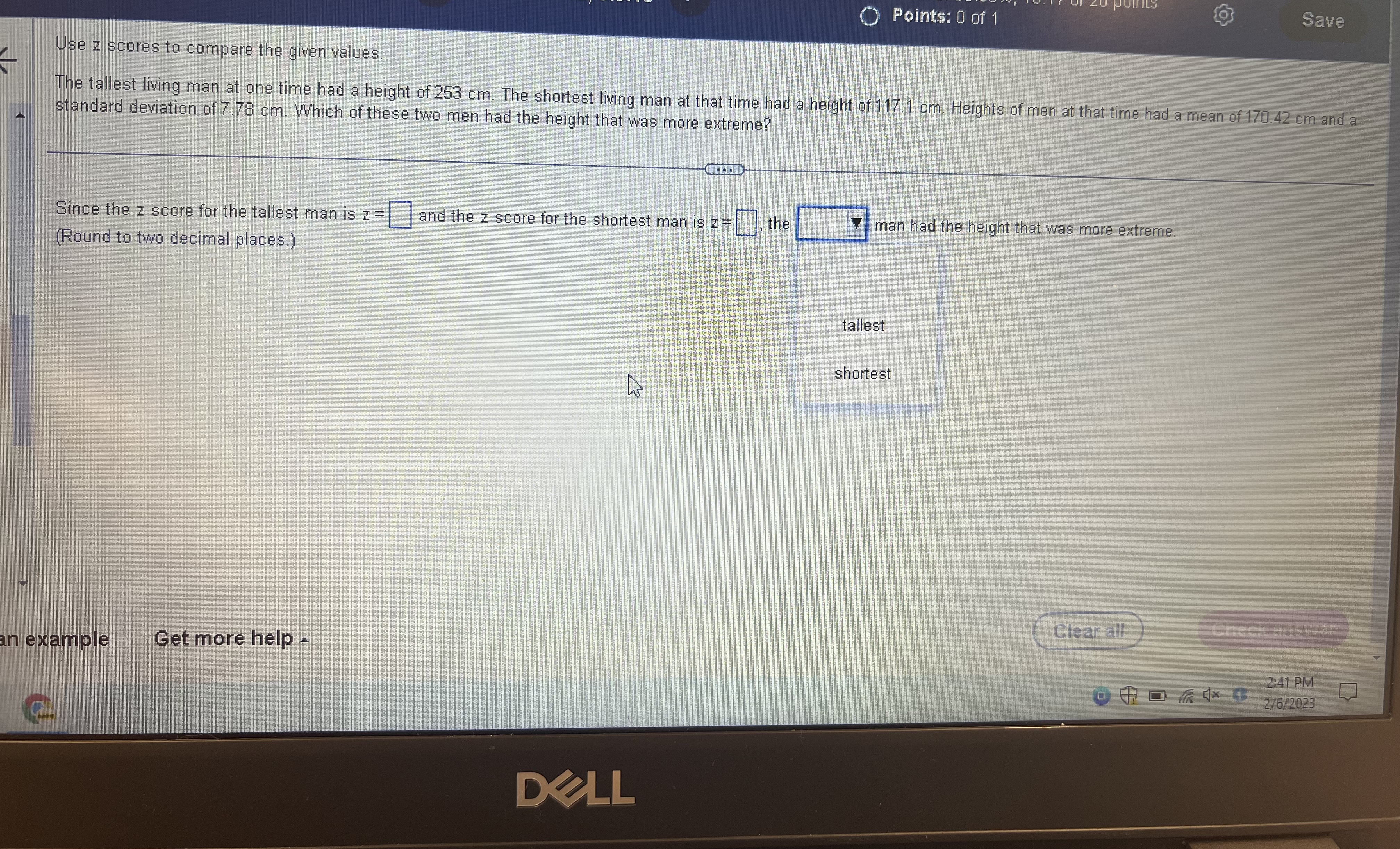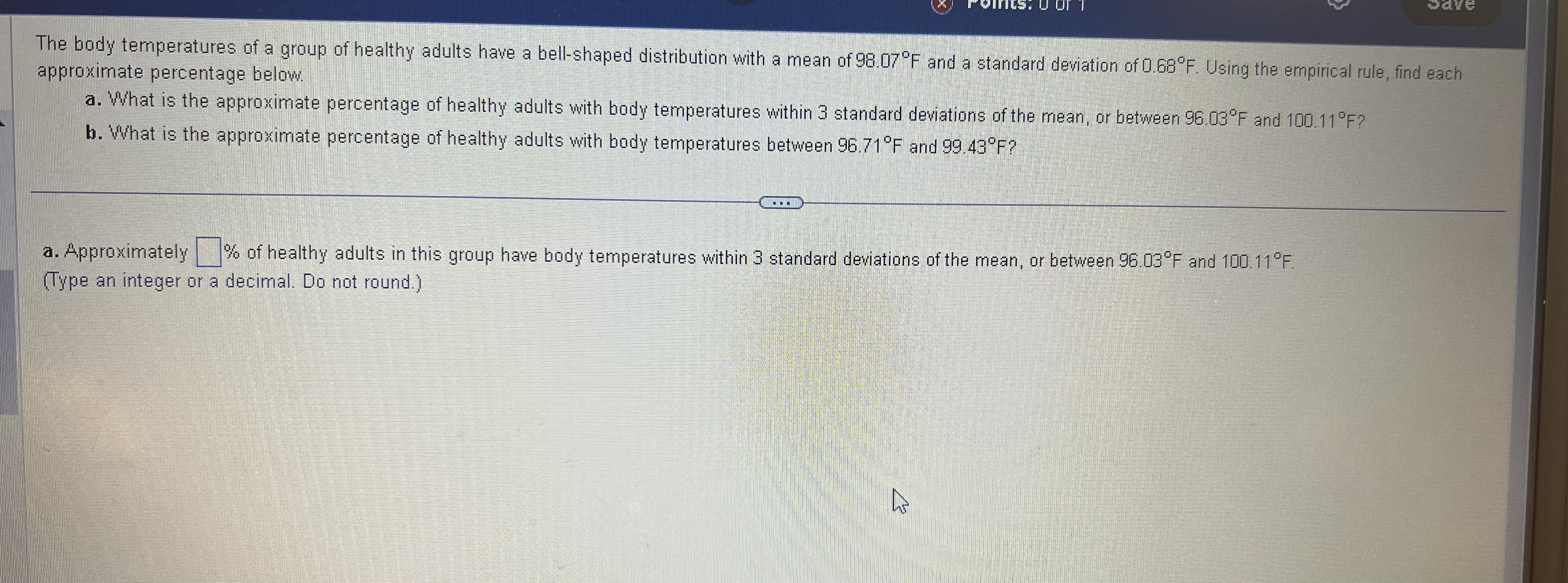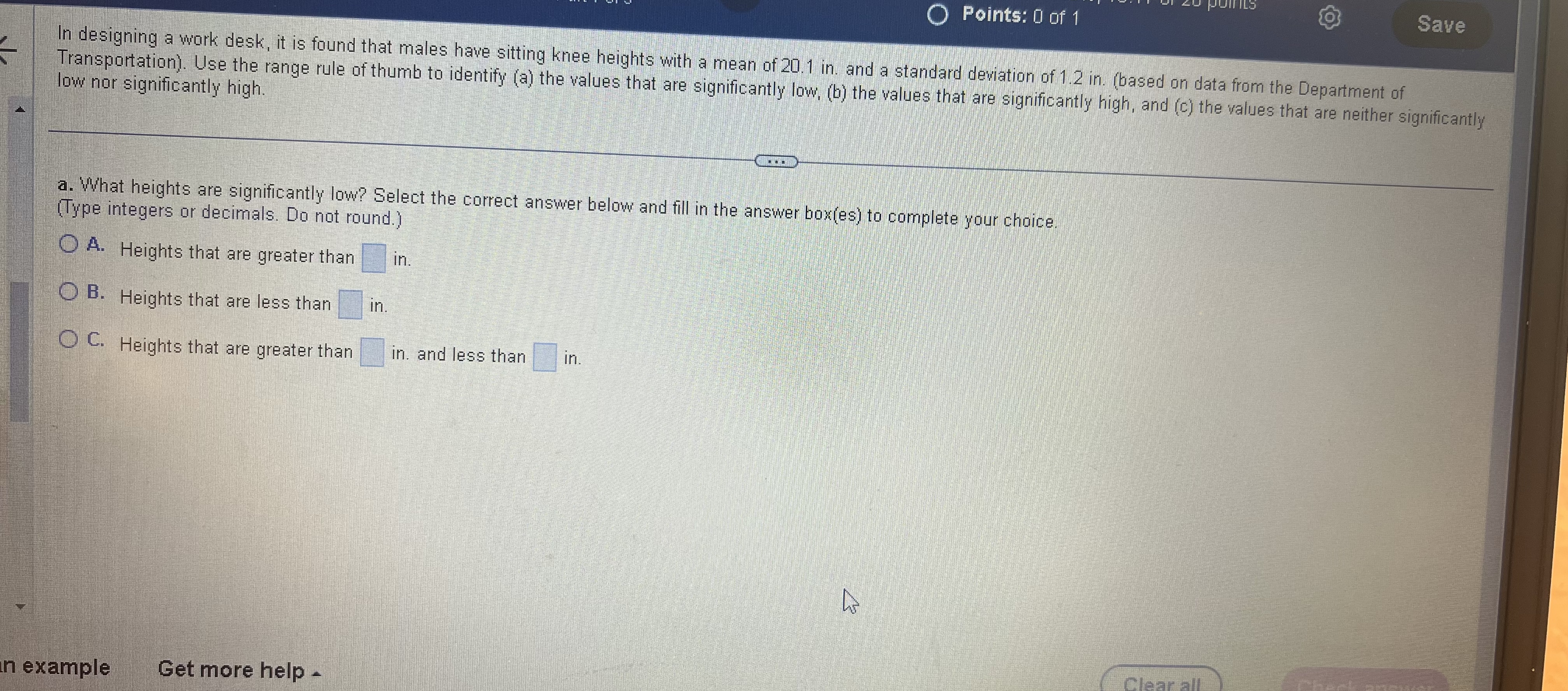Answered step by step
Verified Expert Solution
Question
1 Approved Answer
Use z scores to compare the given values. Points: 0 of 1 Save The tallest living man at one time had a height of



Use z scores to compare the given values. Points: 0 of 1 Save The tallest living man at one time had a height of 253 cm. The shortest living man at that time had a height of 117.1 cm. Heights of men at that time had a mean of 170.42 cm and a standard deviation of 7.78 cm. Which of these two men had the height that was more extreme? Since the z score for the tallest man is z = and the z score for the shortest man is z = (Round to two decimal places.) the man had the height that was more extreme. an example Get more help - DELL tallest shortest Clear all Check answer 2:41 PM 2/6/2023 Save The body temperatures of a group of healthy adults have a bell-shaped distribution with a mean of 98.07F and a standard deviation of 0.68F. Using the empirical rule, find each approximate percentage below. a. What is the approximate percentage of healthy adults with body temperatures within 3 standard deviations of the mean, or between 96.03F and 100.11F? b. What is the approximate percentage of healthy adults with body temperatures between 96.71F and 99.43F? a. Approximately % of healthy adults in this group have body temperatures within 3 standard deviations of the mean, or between 96.03F and 100.11F. (Type an integer or a decimal. Do not round.) < O Points: 0 of 1 Save In designing a work desk, it is found that males have sitting knee heights with a mean of 20.1 in. and a standard deviation of 1.2 in. (based on data from the Department of Transportation). Use the range rule of thumb to identify (a) the values that are significantly low, (b) the values that are significantly high, and (c) the values that are neither significantly low nor significantly high. a. What heights are significantly low? Select the correct answer below and fill in the answer box(es) to complete your choice. (Type integers or decimals. Do not round.) OA. Heights that are greater than in. OB. Heights that are less than in. OC. Heights that are greater than in. and less than in. W n example Get more help - Clear all
Step by Step Solution
There are 3 Steps involved in it
Step: 1

Get Instant Access to Expert-Tailored Solutions
See step-by-step solutions with expert insights and AI powered tools for academic success
Step: 2

Step: 3

Ace Your Homework with AI
Get the answers you need in no time with our AI-driven, step-by-step assistance
Get Started


